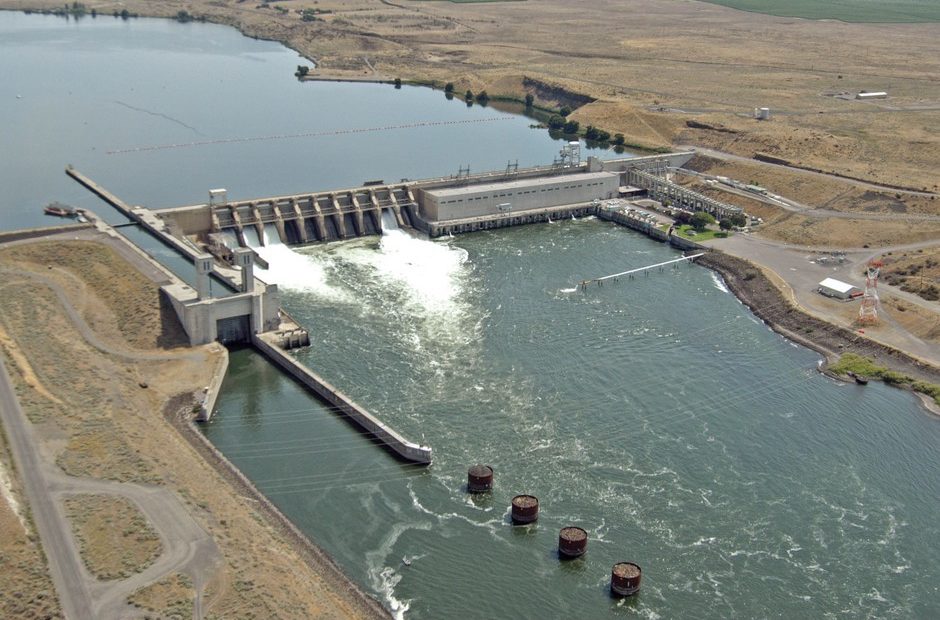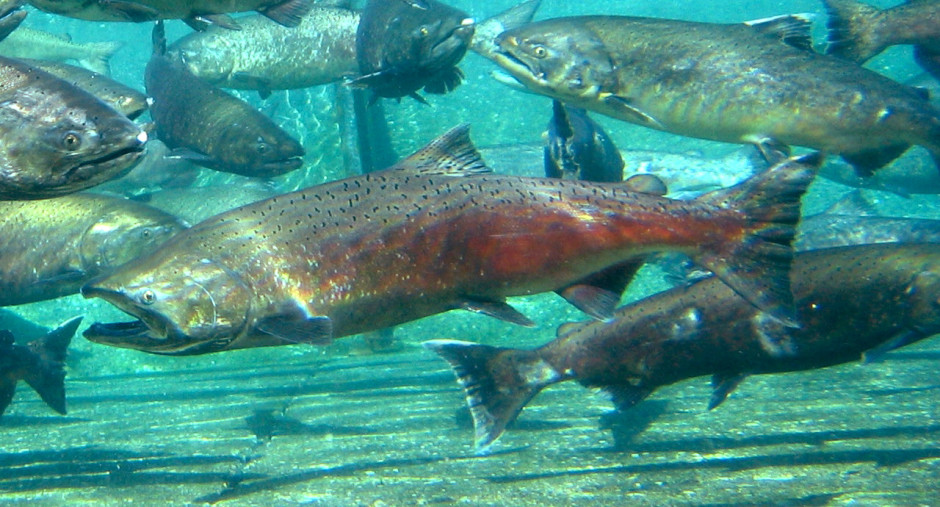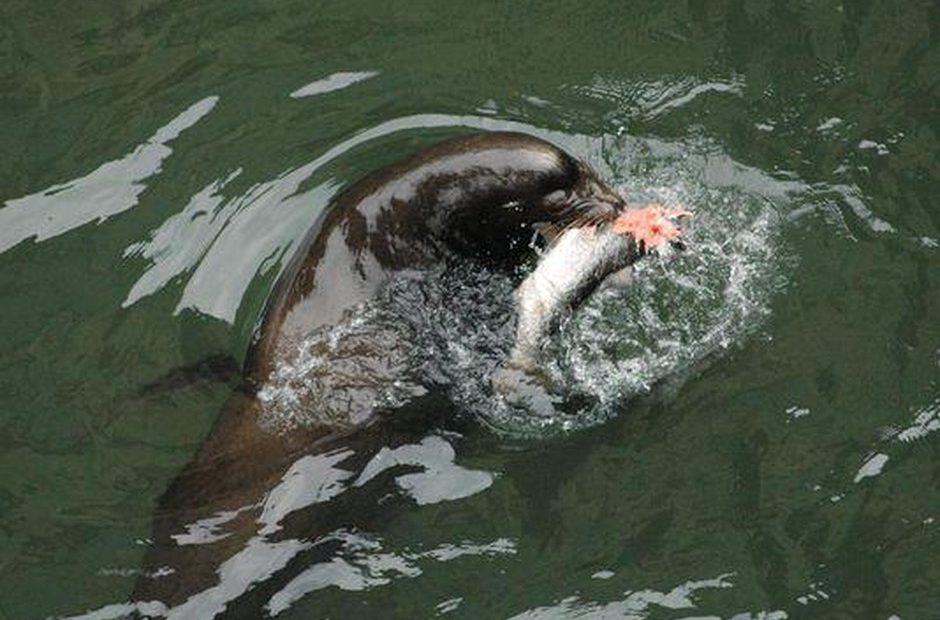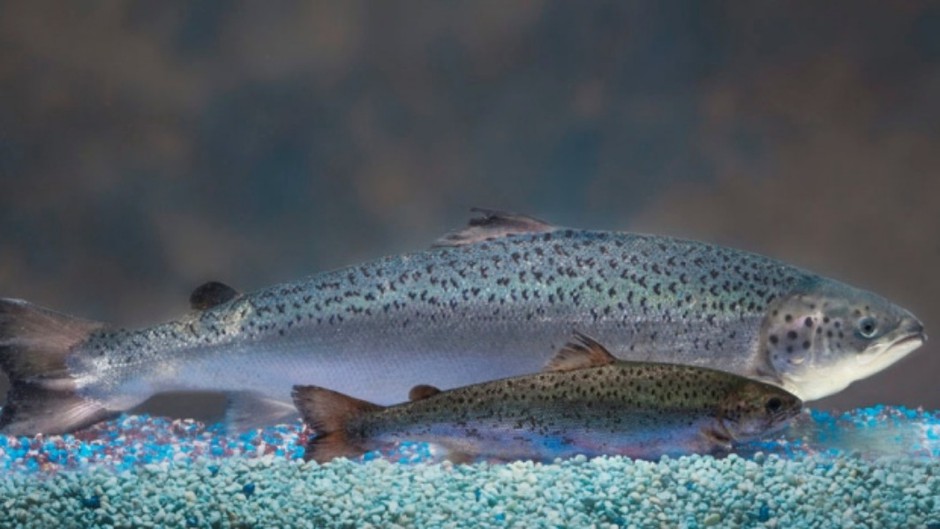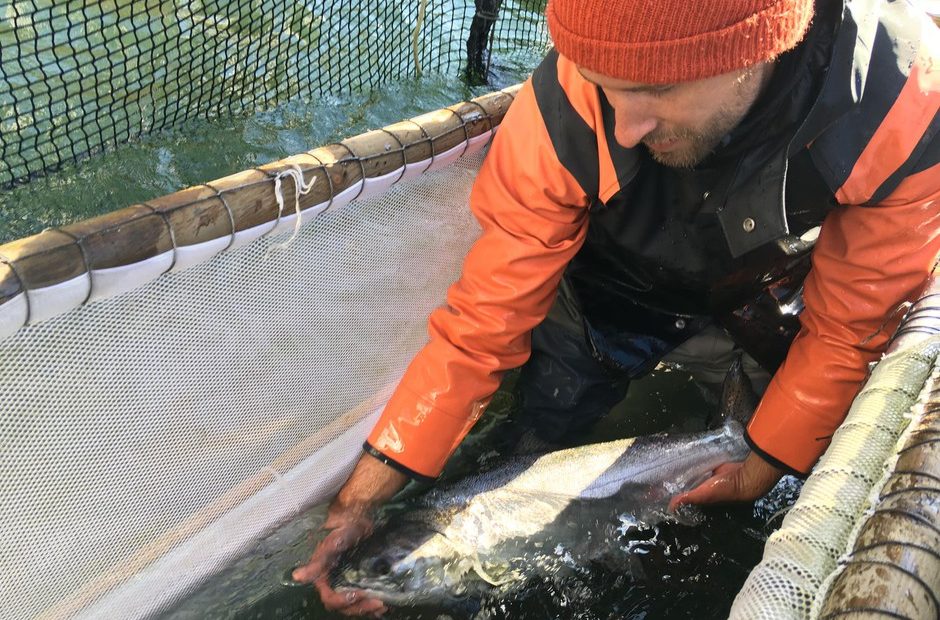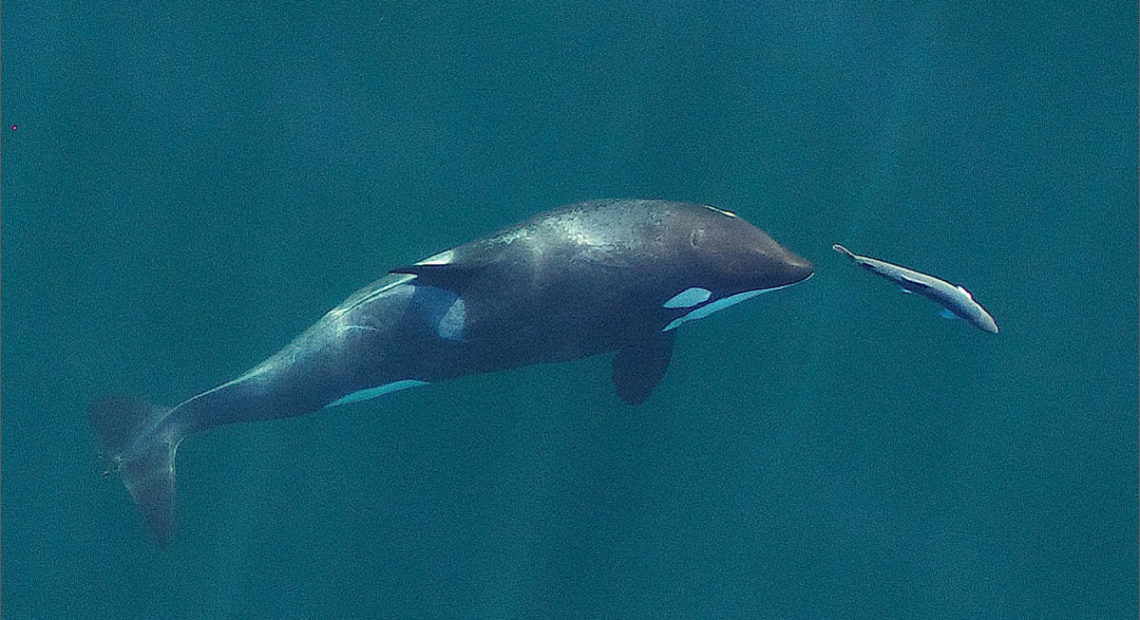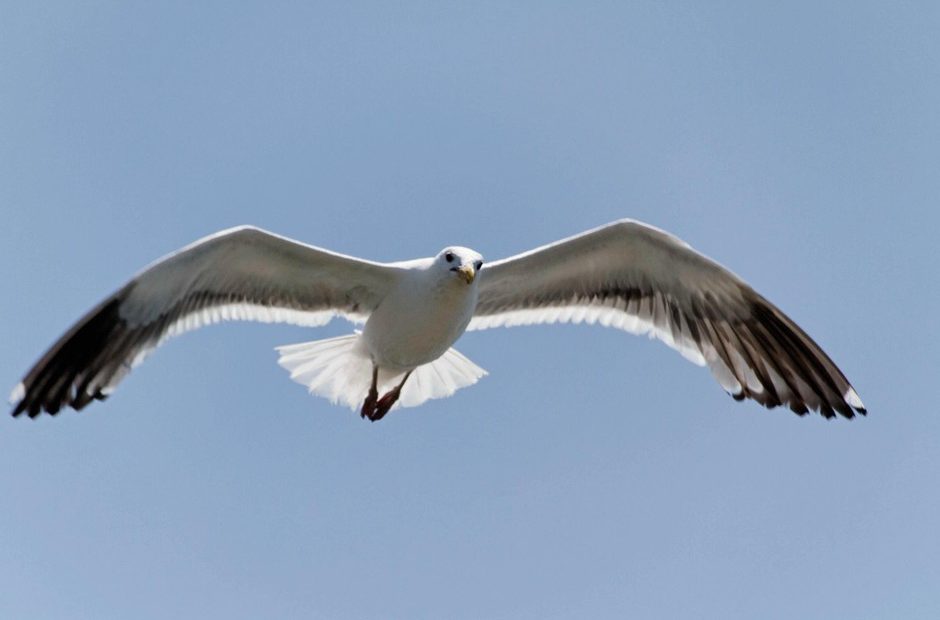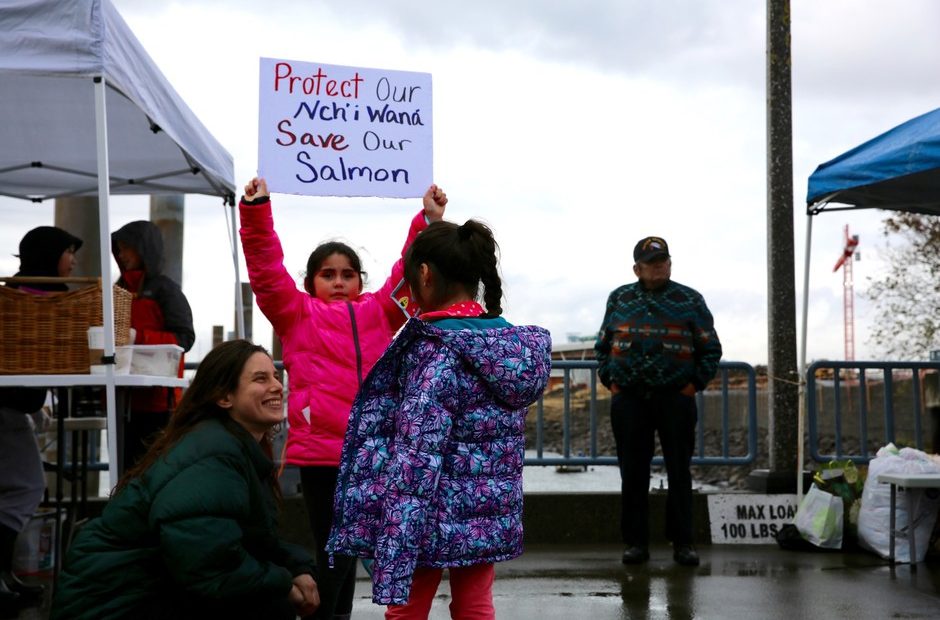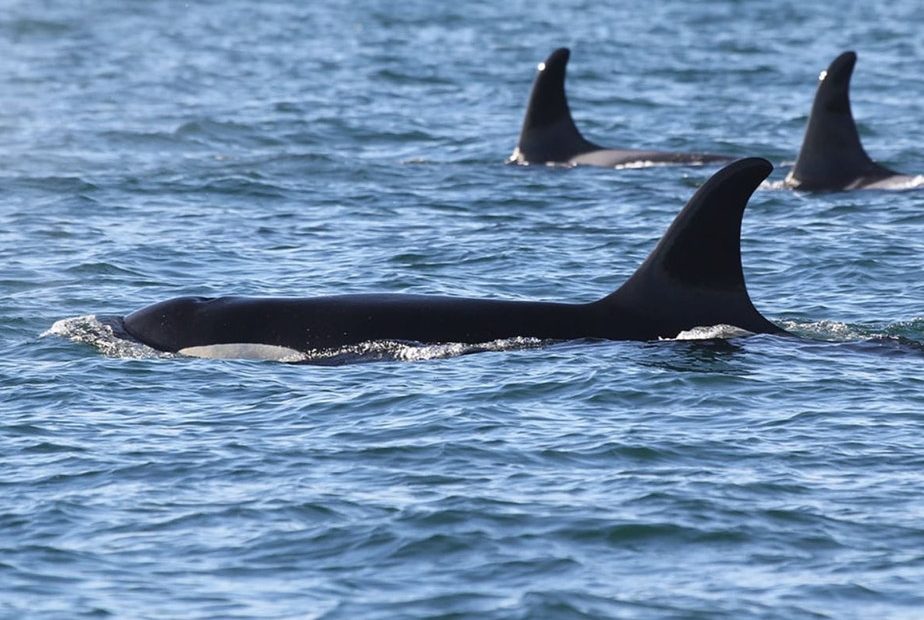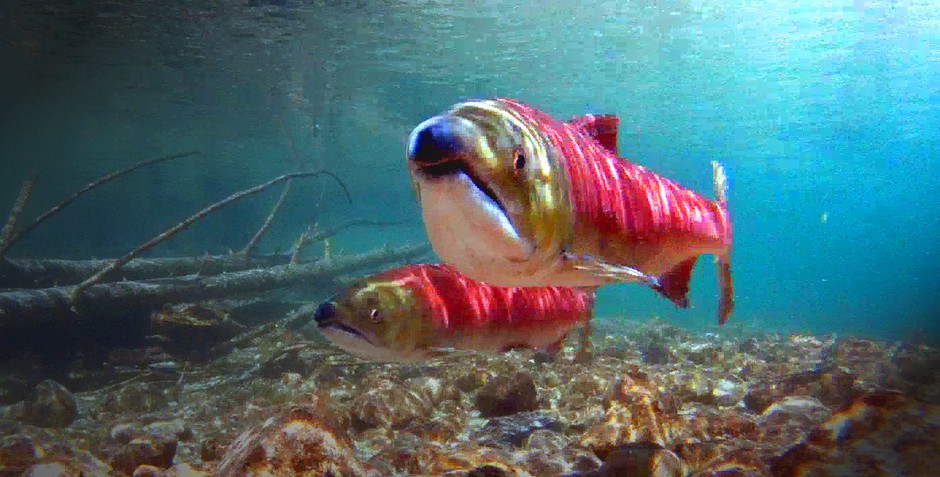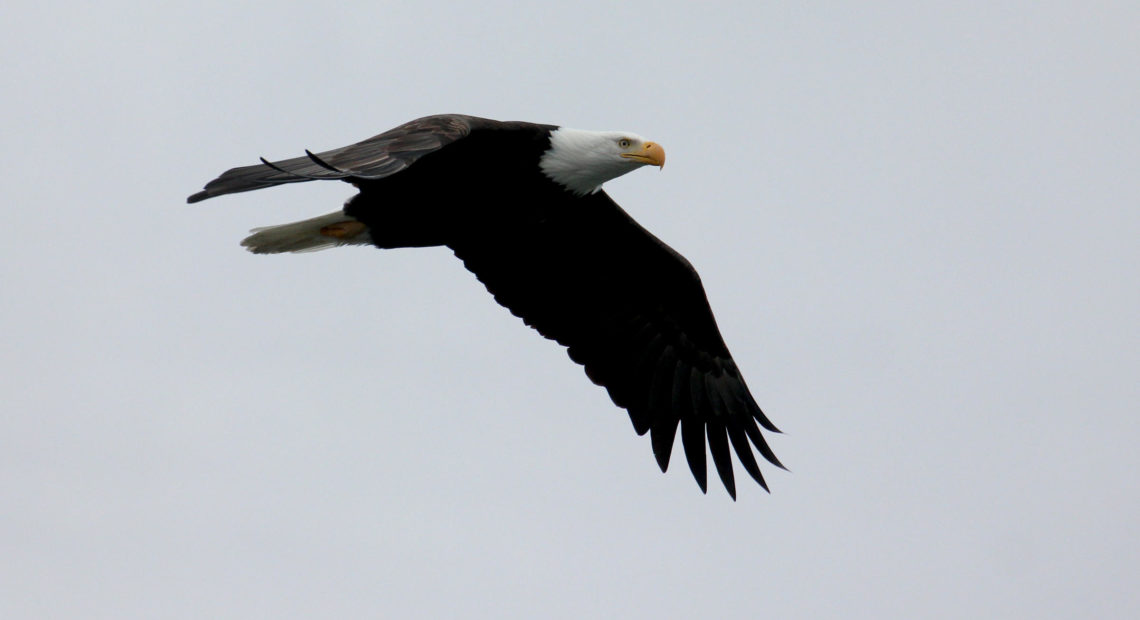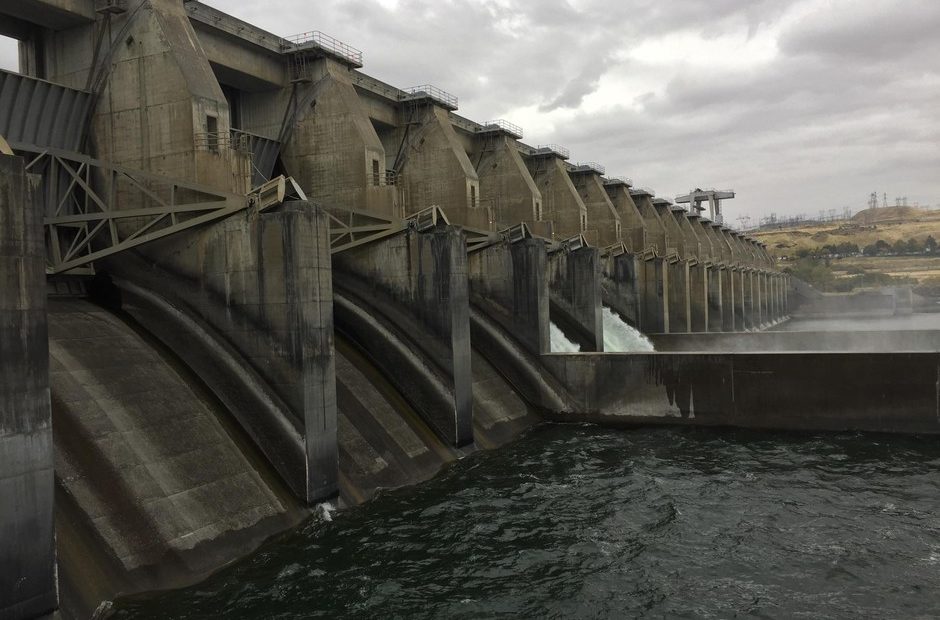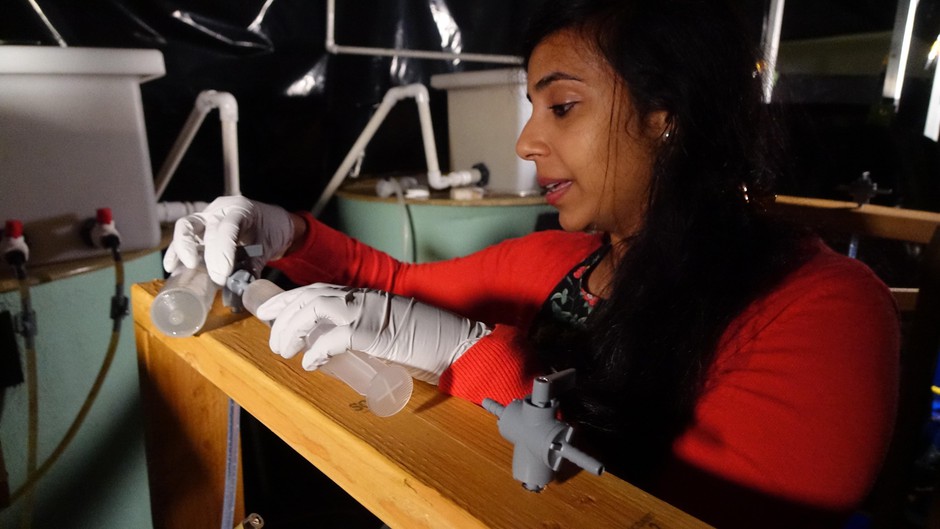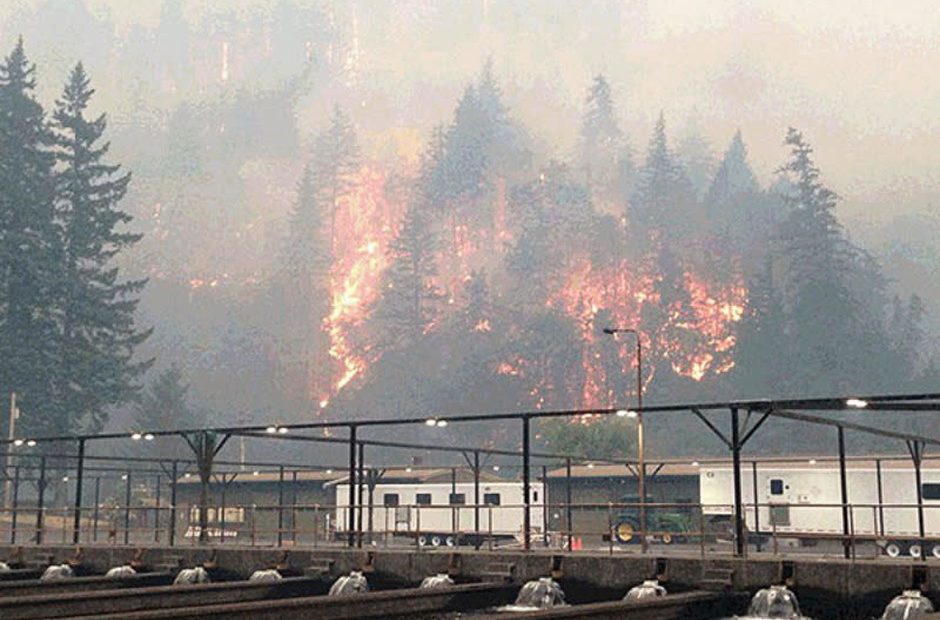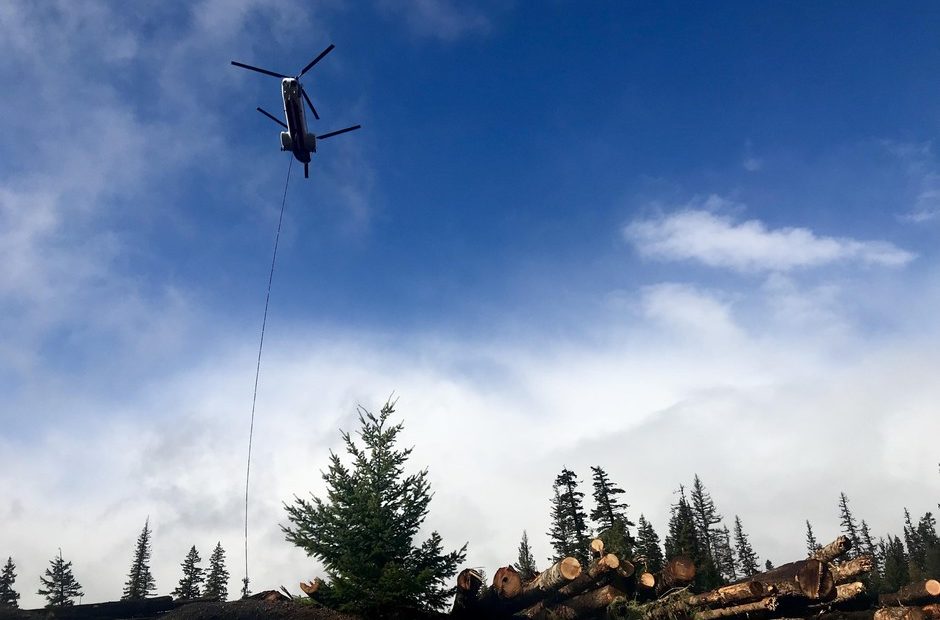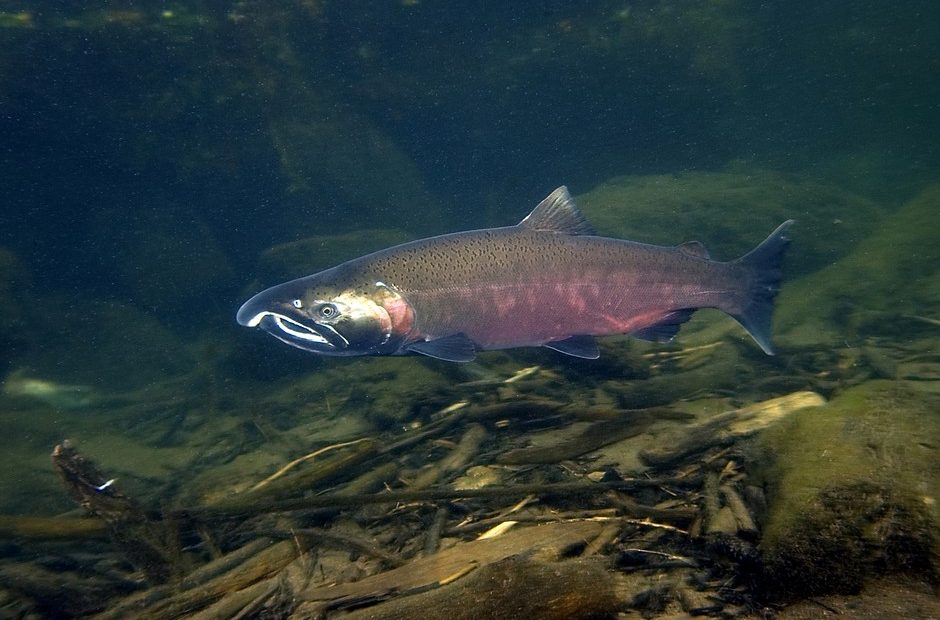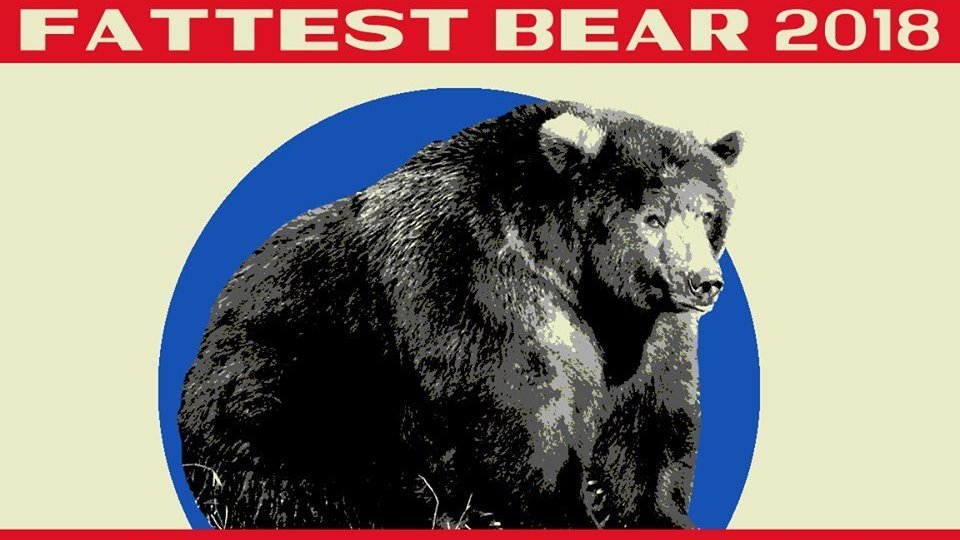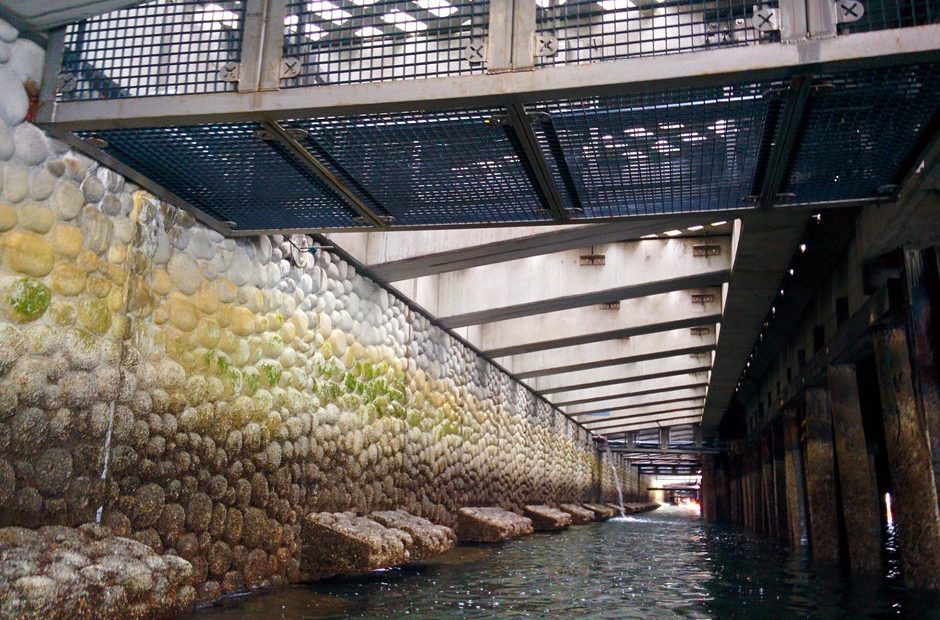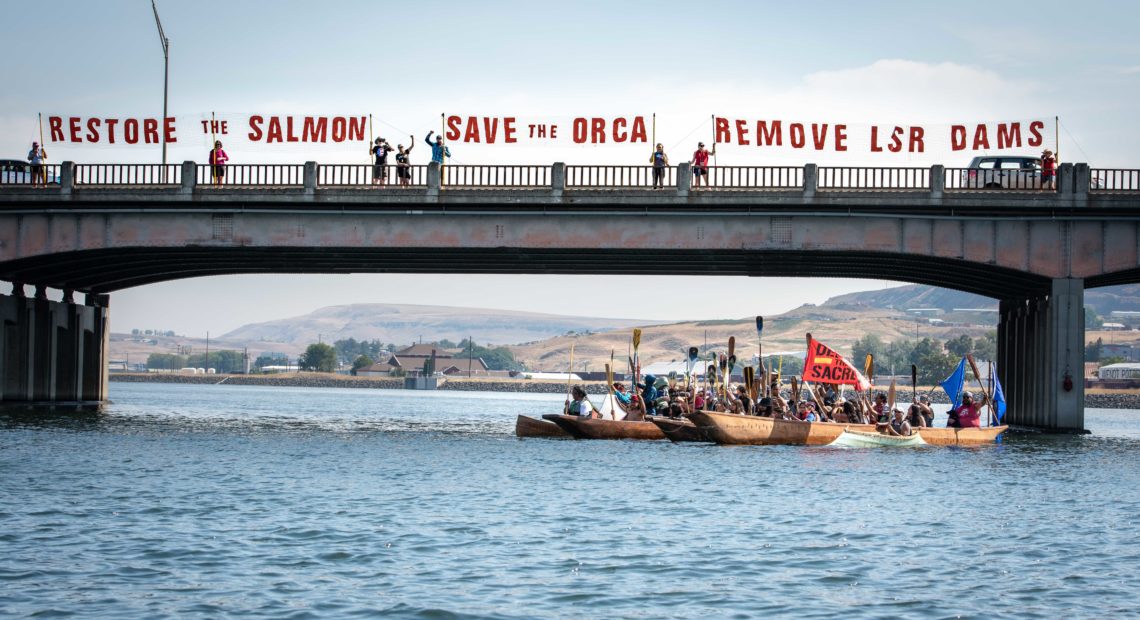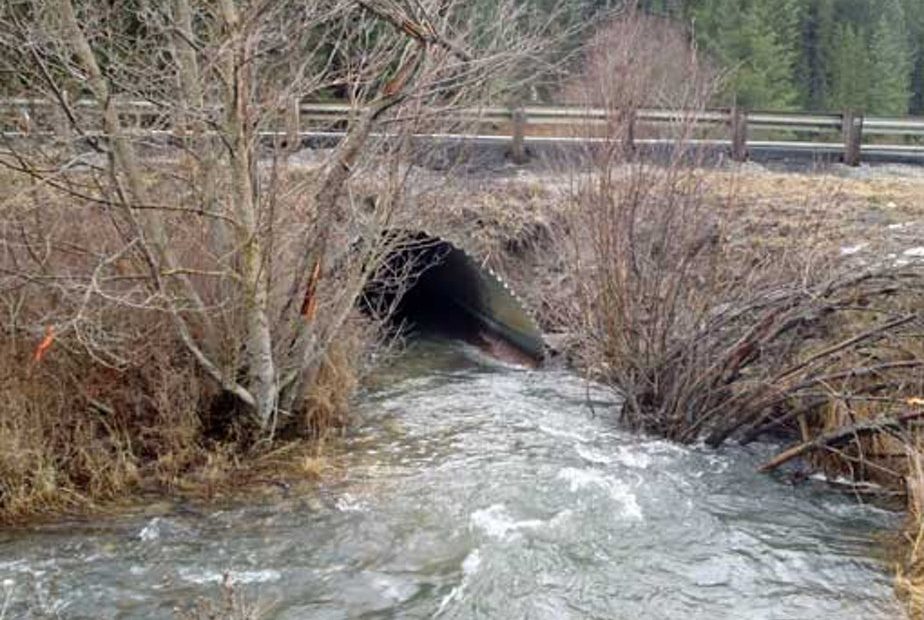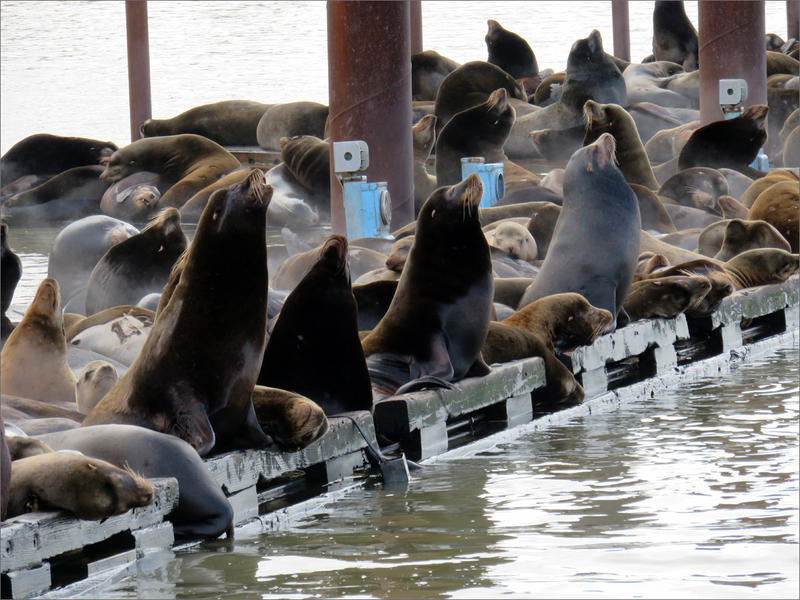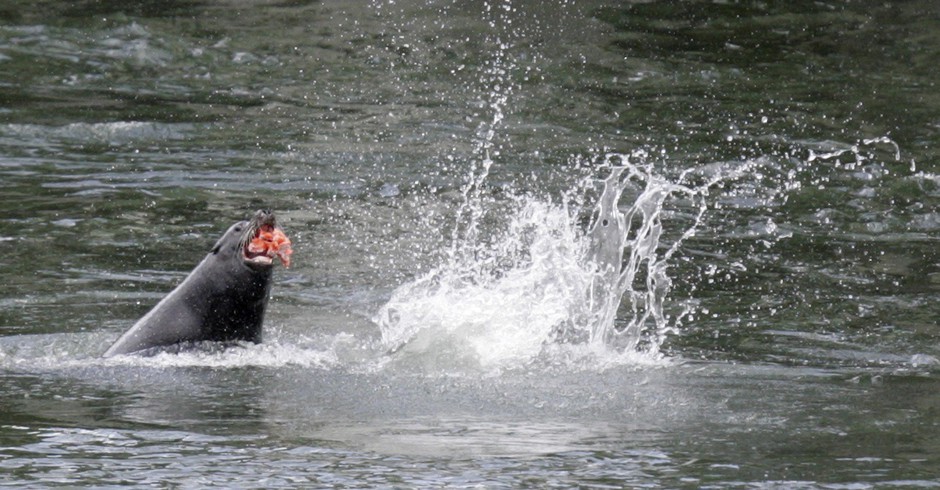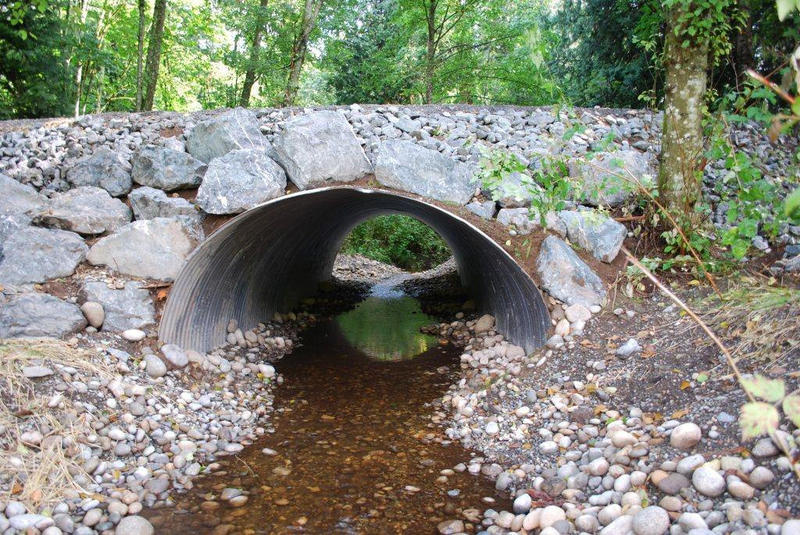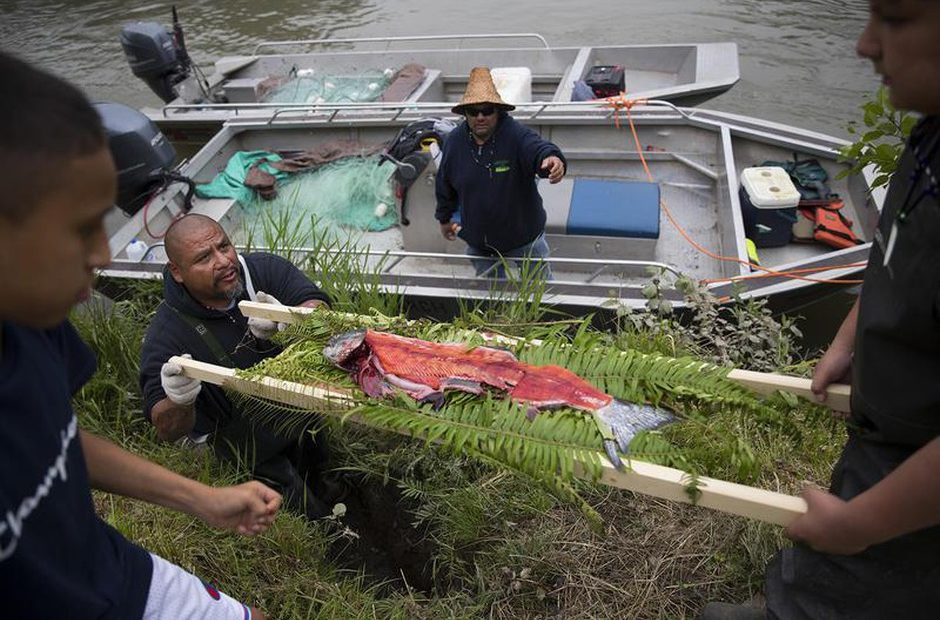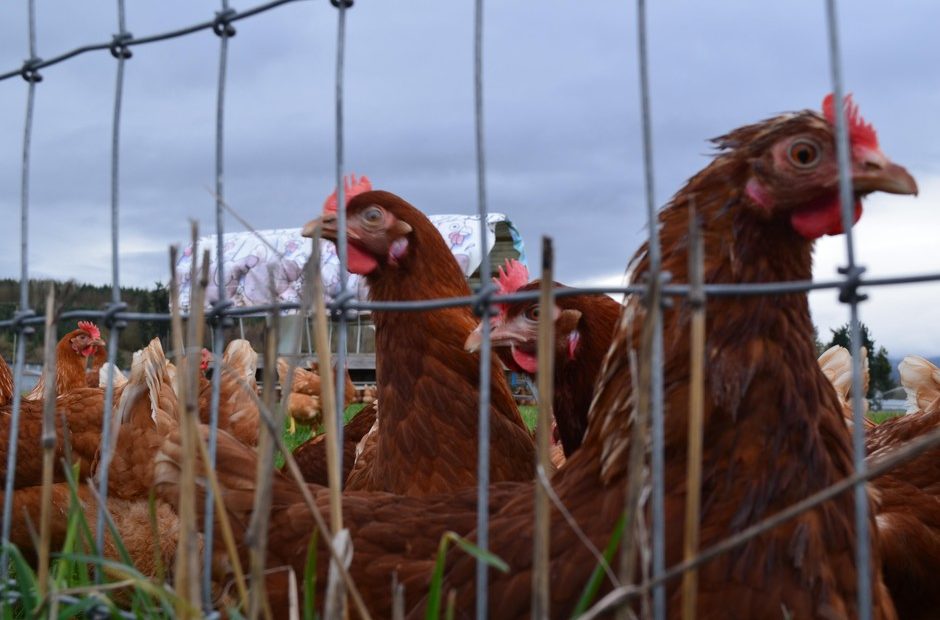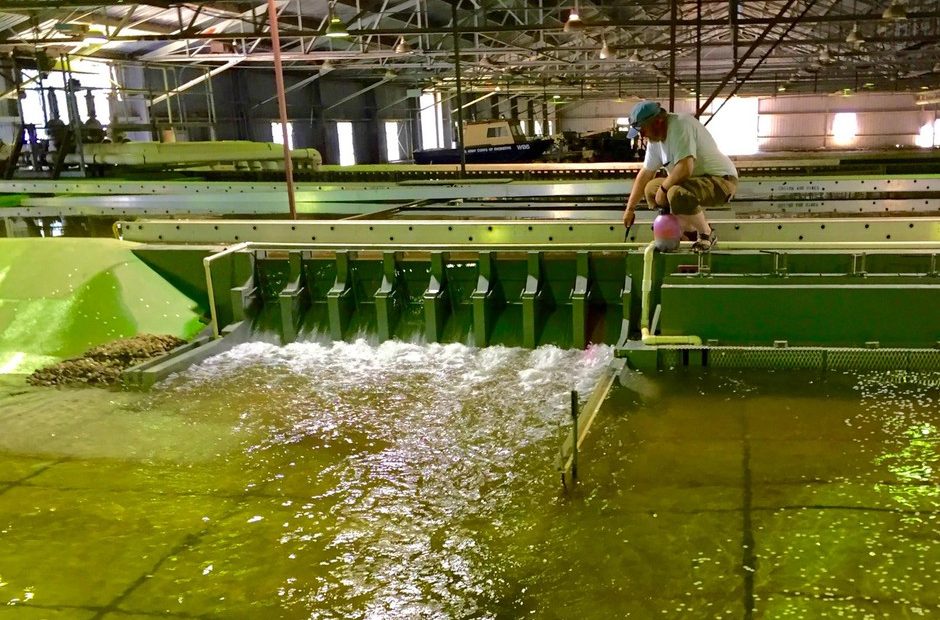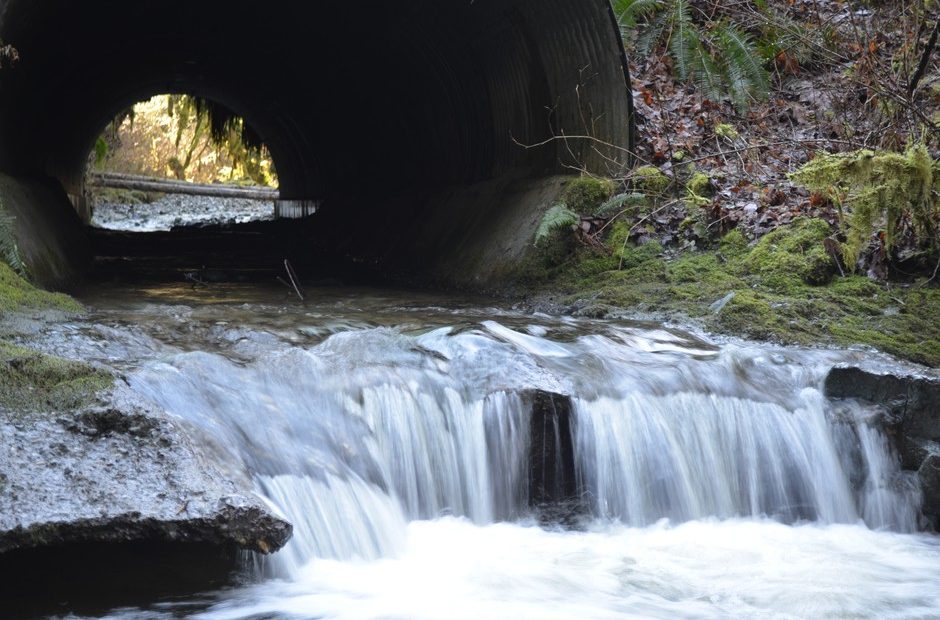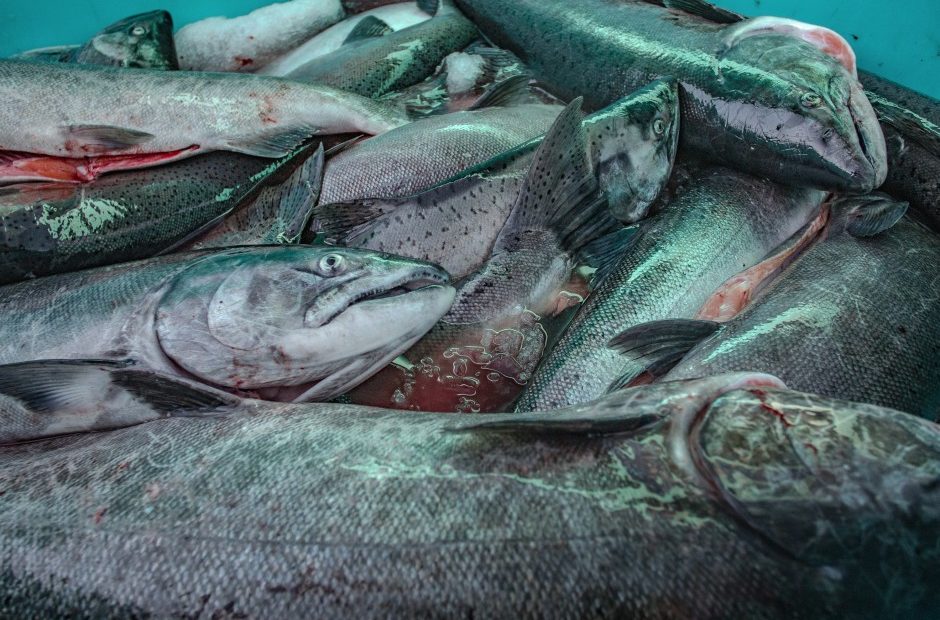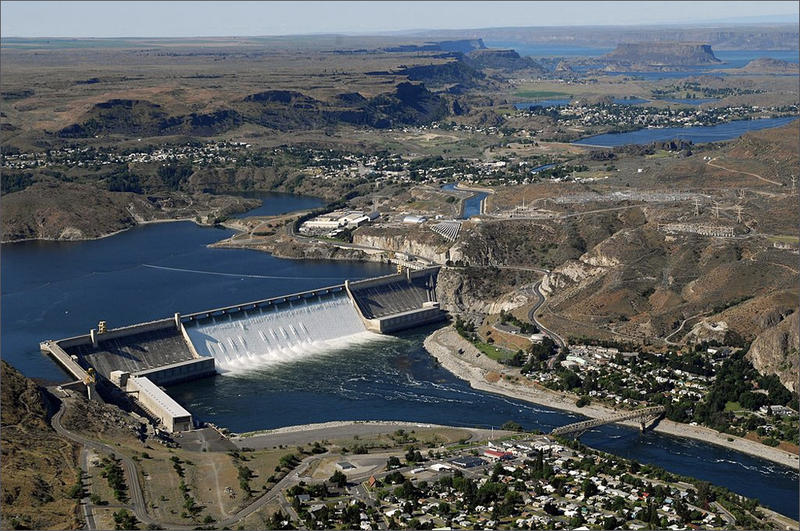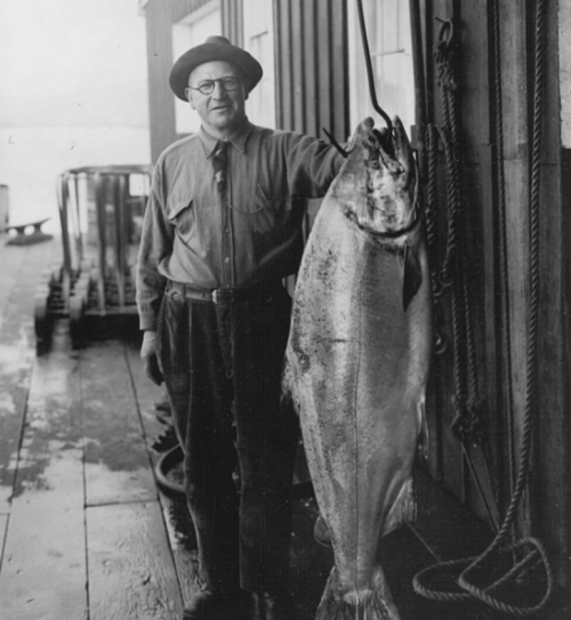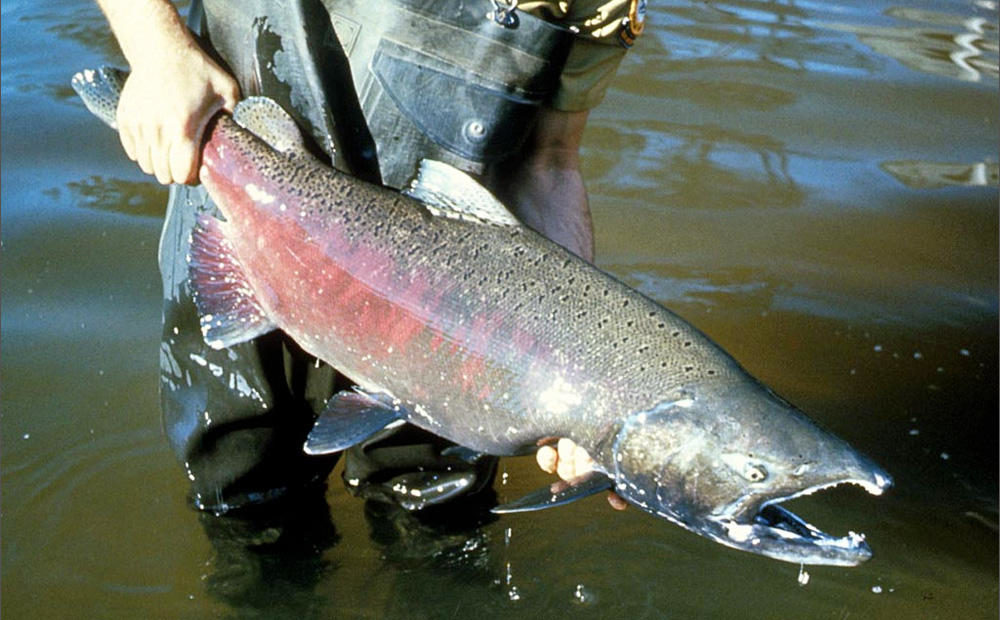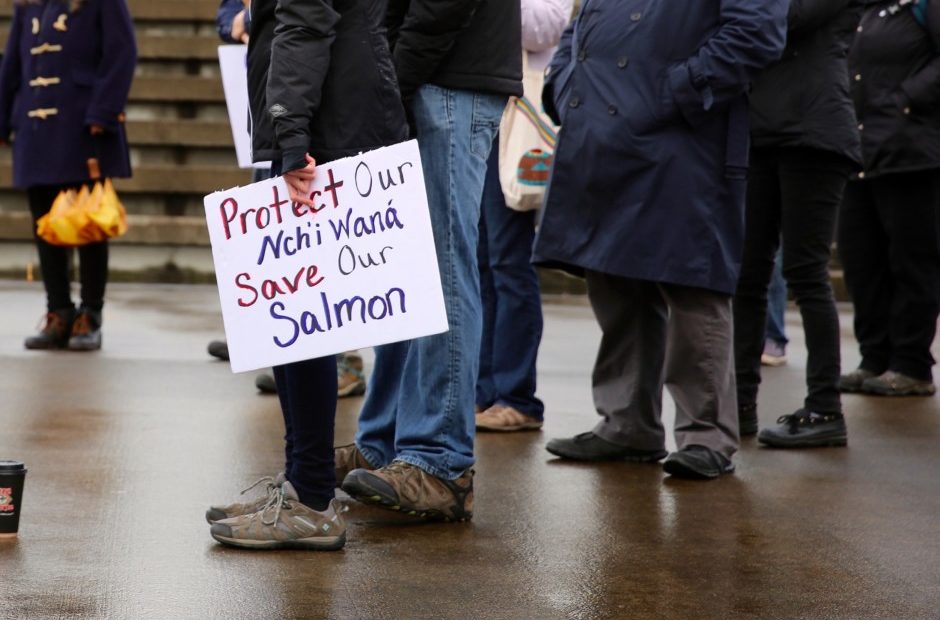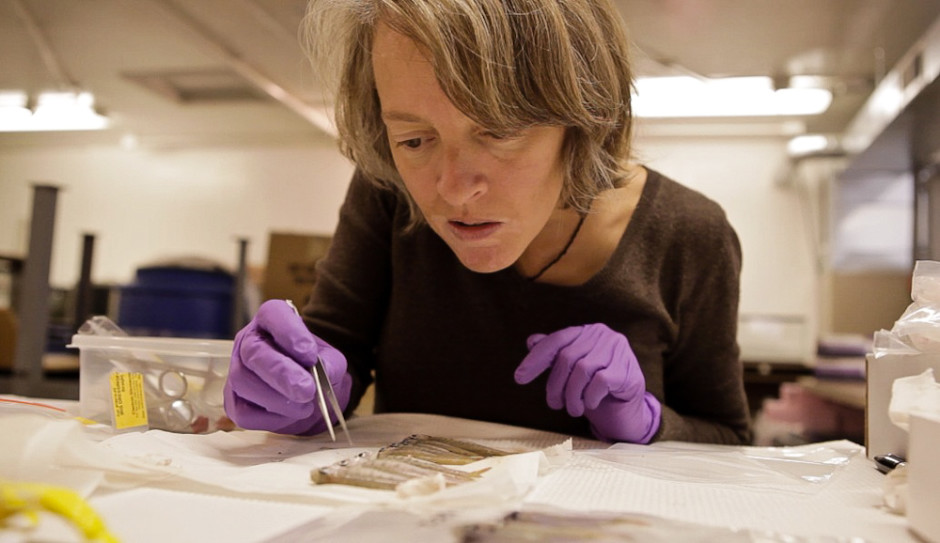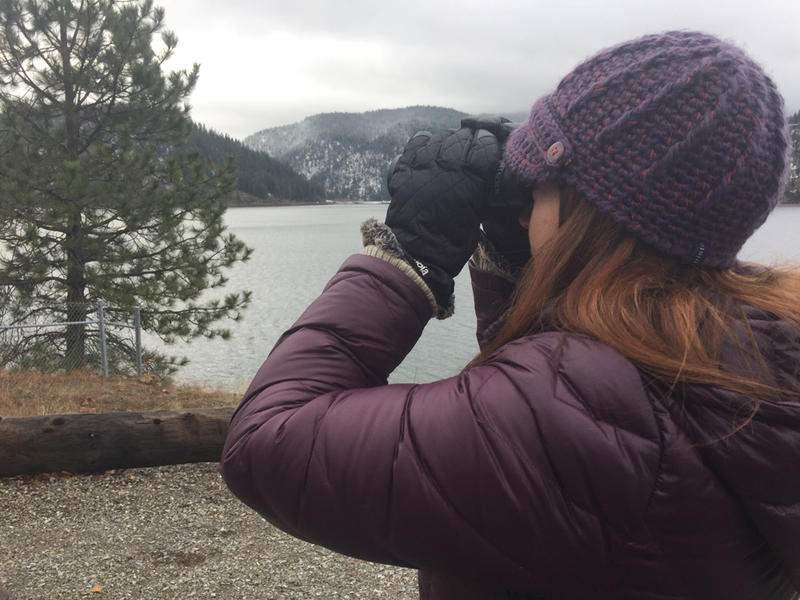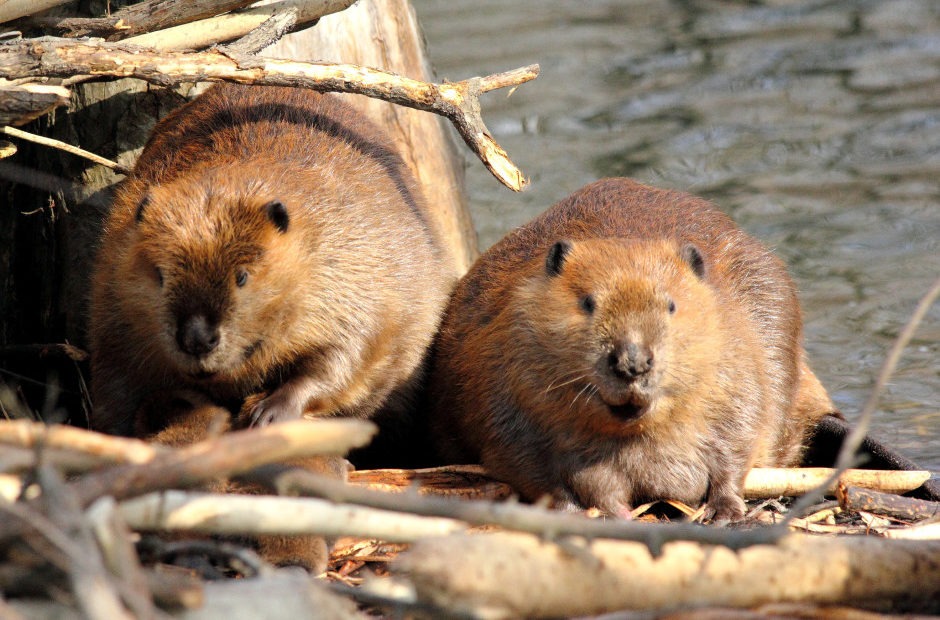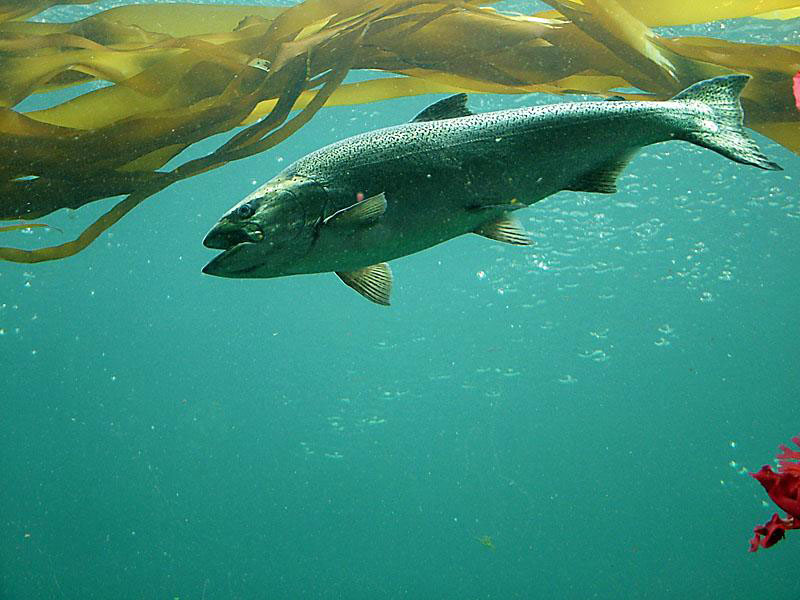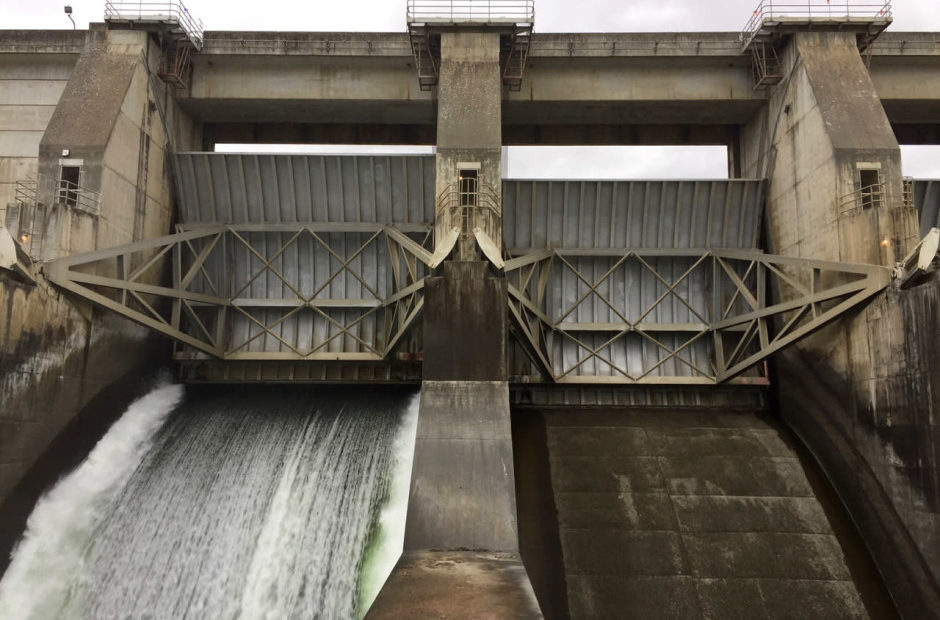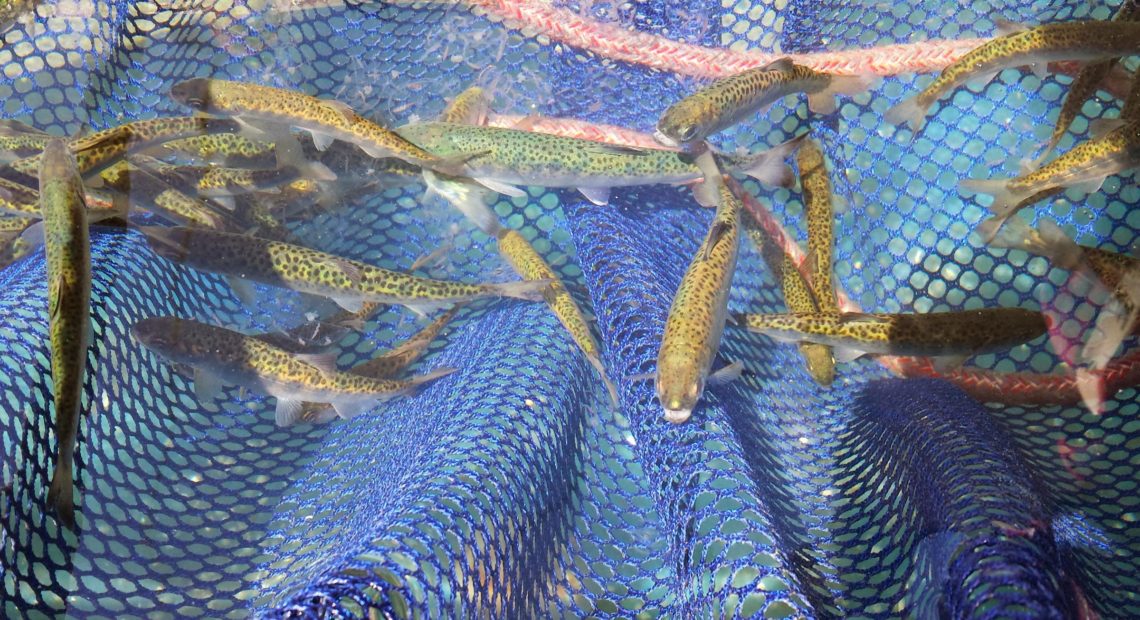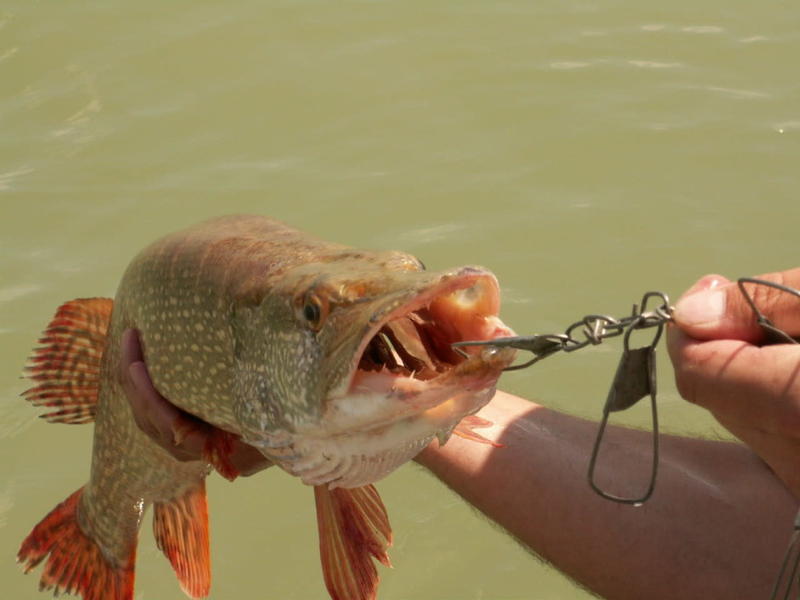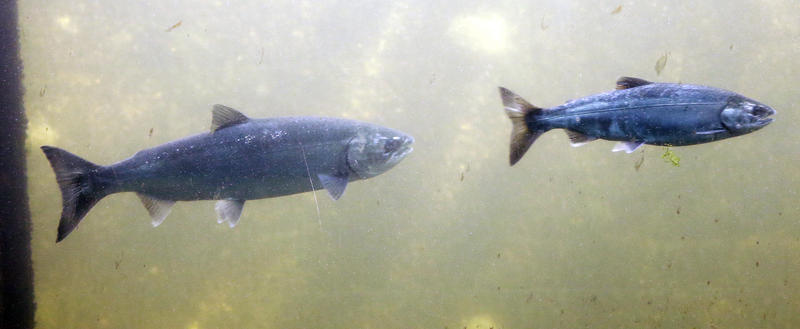Tucked into Washington’s $52.4 billion operating budget passed Sunday night by the Legislature is controversial funding for a “stakeholder group” tasked with looking into what would happen should the four Lower Snake River dams be removed or altered.Read More
What to do with the four Lower Snake River dams and how to best protect imperiled salmon have been a tough questions for decades. They were the focus at a conference on salmon Tuesday at Boise State University’s Andrus Center for Public Policy.Read More
Politicians and wildlife managers are engaged in a fresh debate about whether to intervene in nature to save an imperiled species. The question is whether humans can get seals and sea lions to lay off Chinook salmon so there's more for killer whales to eat.Read More
Genetically engineered salmon are one step closer to winding up on store shelves, after the U.S. Food and Drug Administration lifted an import ban. It’s a move that’s concerning to tribes, food groups and environmentalists.Read More
About this time every year, the Pacific Northwest gets a report card from the natural world. It comes in the form of salmon run forecasts, and gives us an indication of how healthy the Pacific Ocean and our rivers and streams are. The grades are in, and here’s what you need to know about our scores.Read More
In an effort to help imperiled salmon, Washington officials are proposing more water be spilled at dams during fish migration. The hope is that this would also increase the amount of food for orcas in Puget Sound.Read More
There are a lot of predators known to eat imperiled salmon, from sea lions to double-crested cormorants. For a long time, biologists thought gulls weren’t a big part of the problem. Now, they say that was a miscalculation.Read More
For years, Oregon and Washington have been searching for the best way to catch more hatchery fish while letting the wild fish return unharmed to their spawning grounds. Now, one group says they’ve found it.Read More
The city of Vancouver has been fined $60,000 after raw sewage was accidentally released into the Columbia River in 2017. The discharged sewage from Vancouver’s Westside Wastewater Treatment Plant happened during two separate spills in September and October of 2017Read More
A southern resident orca appears to be emaciated, suffering from the disfiguring condition called “peanut head.” Whale researchers encountered the southern resident orcas' J-pod on New Year's Eve as they swam in Haro Strait.Read More
A new study suggests that salmon will not be immune to the effects of ocean acidification. Scientists found that changes to ocean chemistry disrupt a fish’s ability to smell danger in the water.Read More
From mid-December to February, hundreds upon hundreds of bald eagles flock to the Skagit River in northwest Washington to feast on spawning salmon. It's one of the biggest seasonal concentrations of eagles in the Pacific Northwest, but this eagle watching hot spot is being affected by changing cycles of nature.Read More
A new agreement aims to help more young salmon make their way past dams along the Columbia and Snake rivers. The agreement, reached this week, spells out new strategies for spilling more water over the dams — and sending less water through power-generating turbines — each spring. Read More
Congress has agreed to make it easier to kill sea lions threatening fragile runs of salmon in the Northwest. A bill approved by the House this week changes the Marine Mammal Protection Act to lift some of the restrictions on killing sea lions to protect salmon and steelhead in the Columbia River and its tributaries.Read More
Apparently, salmon don’t like the smell of watercress. The aroma of shrimp doesn’t pique their interest either. And the fragrance, eu de steelhead? A definite no-go.Read More
The Northwest is already seeing the effects of climate change, according to a new national climate assessment. Read More
Almost 40 years ago, Scott Nicolai started his stream restoration career taking logs out of the water. A project that’s putting more than 6,000 logs back into remote streams across Central Washington.Read More
For the last 40 years, something has been missing from Oregon’s Lostine River: coho salmon. Now, 42 coho have made it to the waters in the last two weeks.Read More
A federal court ruled Wednesday that the Environmental Protection Agency must come up with a plan to protect salmon from warm water temperatures.Read More
It's the bear body-positive competition you didn't know you needed. The results are in. And this year's winner in Katmai National Park and Reserve's annual "fattest bear" contest is 409 Beadnose.Read More
As the Northwest’s killer whales have gained worldwide attention, more calls are being made to bolster the population of salmon they eat. One big way to do that, supporters say, is by removing Lower Snake River dams. But the federal government isn’t so sure that’s the answer.Read More
The Seattle waterfront is getting a redesign to be friendlier to fish. The city is redesigning this area for migrating salmon, making it more like the shoreline that was here before there was a city.Read More
In the past few days, dam advocates and people who want more wild salmon in the Columbia and Snake rivers have been putting on their best shows. At the U.S. House committee hearing on Monday, dam advocates gave the bulk of the testimony.Read More
On Sunday, Sept. 9 at 9 p.m., the Washington State Department of Transportation closed Blewett Pass for five days to replace fish-blocking pipes with a fish-friendly concrete box. The construction will cost taxpayers $1.2 million, although that’s nowhere near the full cost of the project.Read More
In a clash of protected species, Pacific Northwest members of Congress are coming down in favor of salmon. The U.S. Senate Commerce Committee is scheduled to vote to make it easier to kill sea lions who feast on Columbia and Willamette River salmon and steelhead.Read More
The U.S. House approved a bill Jun 26 that makes it easier to kill a limited number of sea lions that threaten imperiled salmon and steelhead populations.Read More
A tie in the U.S. Supreme Court may cost Washington state $2 billion. The court split 4-4 June 11 in a long-running court battle between tribes and the state over salmon-blocking road culverts.Read More
The Puyallup Tribe welcomed the first salmon of the year back to the Puyallup River in Tacoma on Tuesday. Strangely, perhaps, that chinook’s epic journey from mid-Pacific Ocean to a Puyallup fishing net begins with a sloshing tanker truck.Read More
The U.S. House passed has approved a bill that would circumvent a federal judge’s order for dams on the lower Snake River to spill more water and protect current dam operations through the next four years. It was sponsored and pushed by two Washington state Republicans.Read More
One of the eco-labels Wilcox Farms acquired in recent years is “salmon-safe,” a label more often seen on craft beer and Northwest wine bottles than egg cartons. The salmon and steelhead in the Nisqually River have been declining for decades, and that’s a huge concern for the Nisqually Tribe.Read More
The U.S. Army Corps of Engineers is gearing up for its biggest-ever planned spill of water over dams on the Columbia and Snake rivers. It’s a move ordered by a federal court to help endangered fish. To make sure it’s done right, dam managers tested options first using miniature models of Northwest dams way down in Vicksburg, Mississippi.Read More
The federal government will have to spill more water over Columbia and Snake river dams starting Tuesday in an effort to help young salmon migrating to the ocean. This will make up the biggest planned water spill over dams for the U.S. Army Corps of Engineers.Read More
Seventeen years ago, 21 tribes sued Washington state to fix road culverts. On April 18, the U.S. Supreme Court is scheduled to take on the case. The question is whether state taxpayers should have to dish out billions to dig up roads so salmon can get through. The court’s decision will have repercussions for tribes all over the West.Read More
Orcas survive largely on a single food source: Chinook salmon migrating from Northwest rivers. As Chinook populations have declined, orcas have struggled to find enough to eat.Read More
Ocean conditions off the Pacific Northwest seem to be returning to normal after a three-year spike in water temperature. It’s promising long-term news for fishermen who are looking ahead in the short term to yet another year of low salmon returns.Read More
If all goes according to plan, there could soon be salmon above the Grand Coulee Dam again. That’s according to Cody Desautel, director of Natural Resources for the Confederated Tribes of the Colville.Read More
While the orcas of Puget Sound are sliding toward extinction, orcas farther north have been expanding their numbers. Their burgeoning hunger for big fish may be causing the killer whales’ main prey, chinook salmon, to shrink up and down the West Coast.Read More
Every year, wildlife officials keep track of how many salmon return to their spawning grounds. This year, they expect low returns of salmon in Washington state—and that could change the fishing outlook.
Read More
Salmon researchers in the Northwest are turning to sound to learn more about the fish they’re trying to understand.Read More
Oral arguments in a federal lawsuit filed against 30 private companies and government entities for cleanup costs associated with pollution at the Portland Harbor Superfund site are expected to start in April.Read More
Each time it rained during an eight-week period in the winter of 2015, someone from Jenifer McIntyre’s team drove up to Seattle and collected stormwater near the Highway 520 bridge across Lake Washington.Read More
Every winter, hundreds of bald eagles migrate through Idaho’s panhandle. This year, eagles numbers are at a record high. Migrating eagles start to arrive in mid-November, just as the blue-backed kokanee salmon return to the lake.Read More
It took the threat of a lawsuit, but a federal agency is no longer killing the Beaver State’s beavers. Environmental groups had challenged the practice in Oregon because, they said, it’s a threat to more than just the state animal. Like much in the Northwest, it touches on salmon.Read More
Researchers had long suspected salmon have lost huge amounts genetic diversity over the years. But they’d never tested the hypothesis -- until now.Read More
A federal judge has approved a plan to spill more water through dams in the Columbia River Basin this spring.Read More
Sixty different entities in a salmon recovery project have been collaborating for nearly a decade, trying to solve the mystery of why so many of the juvenile fish die after they swim out to the ocean. Can artificial intelligence help?Read More
They’ve been called devil fish. They’re No. 1 on the hit-list for invasive aquatic life in Washington waters. And they’re creeping farther and farther down the Columbia River system.Read More
A Chinook salmon. Listen One of Idaho’s struggling salmon species could eventually become self-sustaining in the wild under the federal government’s new recovery strategies. The two new recovery plans are […]Read More
Coho salmon, left, and Chinook salmon, swim past viewing windows at a fish ladder at the Ballard Locks in Seattle. Photo credit: Elaine Thompson / Associated Press Listen It […]Read More

